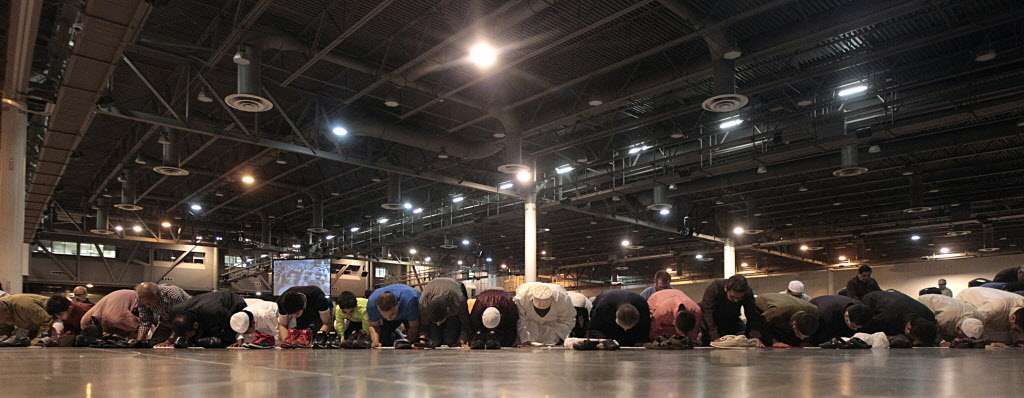HOUSTON – For Muslims around the world, preparing for the long days that mark a summer Ramadan means gathering food for suhoor and iftar, planning menus, teaching children the true meaning of fasting, and ensuring one’s own fast and spiritual journey during this most holy of months is fulfilling and rewarding.
For practicing Muslims here in the United States, the preparation is no different. However, American adherents of Islam often have the added challenge of explaining to their non-Muslim friends, coworkers and acquaintances exactly how the fasting works, how they deal with its challenges and how they seek to reap Allah’s rewards.
When she worked outside of her home, Atimad Aityousse said she often found herself talking to those around her about the fast, how it’s conducted, and what it means for Muslims.
Aityousse said several of those who are Christian or Jewish, or simply those who are most educated in general, seem to understand when she explained how fasting benefits the body, how the practice of abstaining from food and water is prevalent in many religions, and respected her right to practice her religion in peace.
“Many people thought it was a good thing, but they still often say ‘Wow” when you first tell them about it,” Aityousse, who lives in Houston but is originally from Morocco, told AboutIslam.net.
“They really can’t believe we don’t even drink water all day.”
Still, she said it was when she worked in a daycare that she faced some problems, but only with one coworker in particular.
“There was one woman who tried to force me to drink water. She kept saying I was going to pass out,” Aityousse said.
“Even when I told her I was feeling fine she continued to be rude to me, asking me why did I have to fast all day, what about if I felt hungry, and would tell me just to go ahead and eat.”
She said she eventually had to approach her manager about the woman’s behavior to have it stop.
But, despite that one negative encounter, Aityousse said most people are simply curious about Ramadan and its rituals and she is happy to tell people about the benefits of fasting, including protection from some cancers, making Muslims more sensitive to the plight of the hungry, and building patience.

Curious
A Libyan national, Somia Tabib recently moved to Houston from Missouri. She echoed Aityoussee’s statements on reactions from non-Muslims about her fasting but said, overall, people are interested and a bit impressed.
“They really can’t believe when you tell them that, after the first day or two, you don’t really feel the hunger anymore,” she told AboutIslam.
“But I don’t think any of them want to do it.”
For Tabib, Ramadan means making traditional Libyan foods such as soup, spring rolls stuffed with ground meet and potatoes, fried stuffed potatoes and lots of fresh juice to refresh her and her family after a long, summers-day fast.
Tabib’s two oldest children, who are 13 and 14, also participate in Ramadan. She said she makes sure they eat a late suhoor to ensure they are as full as can be throughout the day. She also encourages midday naps to prevent headaches and fight fatigue.
She said she also makes pains to explain to her children why they’re fasting, particularly when the days are long and hot.
“You tell them that it’s very good for their body, that it helps them to be more patient,” Tabib said.
“If you give them this advice they will feel strong and they will know why they’re doing it.”
For her two younger children, Tabib decorates her home with “Ramadan Mubarak” signs along glowing moons and stars, adding to the festive atmosphere of the month.
Aityousse said she usually decorates as well, but as she will spend most of Ramadan this year in Morocco, she will instead focus more on reading Qur’an.
But of course, she will ensure she and her family have their fill of special foods before she leaves.
Aityousse said she will likely feature one traditional food each day, be it msemen, a flaky bread topped with onions or honey, or harira, a veggie-heavy soup famous in Morocco.
But to make sure she’s not overworked and has time to devote to prayer and reading of Qur’an, Aityousse will pace herself.
“My husband is not demanding during Ramadan and doesn’t like to eat a lot of food at Iftar so every day I will make a little something different,” she said.
“It keeps it easy and fun.”
